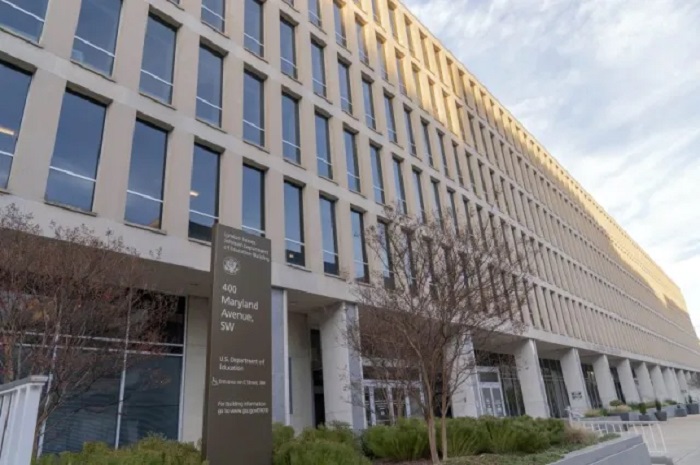LANSING, Mich. — President Donald Trump signed an executive order on Thursday directing Education Secretary Linda McMahon to take all necessary actions to shutter the U.S. Department of Education. While the move would require Congressional approval to fully dismantle the department, the executive order has ignited significant debate across Michigan, with local officials offering sharply contrasting views on its potential impact on the state’s education system.
In response to the executive order, the Michigan Department of Education released a statement expressing strong disapproval, emphasizing concerns that reducing staff and funding would have a detrimental effect on students. Dr. Pamela Pugh, president of the Michigan State Board of Education, argued that the federal government’s role in supporting education should be expanded, not diminished. “The federal government needs to do more—not less—to help all children learn and be physically and mentally healthy so they can achieve their dreams,” Pugh said in the statement.
However, State Superintendent Dr. Michael F. Rice expressed skepticism that the order would lead to the department’s closure. “At the end of the day, I do not believe the U.S. Department of Education will be shuttered,” Rice said. “Congress and the American people will not allow it.” He emphasized that while the executive order could stir political debate, he believed the Department of Education would ultimately remain in operation.
The executive order comes amid rising tensions between Michigan’s Republican-led legislature and the state’s Democratic officials. The Michigan House of Representatives adopted House Resolution 55 on Thursday, supporting the push to abolish the federal Department of Education. State Rep. Angela Rigas (R-Caledonia), who voted in favor of the resolution, framed the debate in terms of states’ rights. “The Tenth Amendment speaks for itself,” Rigas said. “Powers not specifically named to the federal government, or prohibited to the states, belong to the states. Local educators know far more about our kids and what they need than career bureaucrats in D.C. ever will.”
Proponents of the executive order argue that the Department of Education has failed to address critical issues in the nation’s education system, particularly a decline in national test scores since the department’s creation in 1979 and exacerbated by the COVID-19 pandemic. State Sen. Jonathan Lindsey (R-Coldwater) expressed frustration with what he described as the federal bureaucracy’s inability to address the needs of students. “Since the inception of the Department of Education, we have seen a dramatic downturn in our national school systems,” Lindsey said. “Our students are suffering, and our national literacy and math proficiency percentages continue to decline.”
In contrast, Michigan Democrats have expressed grave concerns about the potential impact of dismantling the Department of Education. State Rep. Matt Koleszar (D-Plymouth) argued that such a move would strip Michigan schools of more than $2 billion in federal funding, crucial support for low-income students and educational programs. “To support the deconstruction of the DOE is to support the stripping away of educational opportunity for hundreds of thousands of Michigan’s most vulnerable students,” Koleszar said. He further emphasized that federal funding has been vital in retaining teachers, updating textbooks, and offering after-school programs in districts serving at-risk communities.
The debate over the future of the U.S. Department of Education has gained additional momentum following the introduction of a joint resolution by Michigan Republicans earlier this week. The resolution proposes a constitutional amendment to eliminate the state’s Board of Education, state superintendent, and board for public community and junior colleges, potentially shifting control of state education policy to the governor. Should the amendment pass, it would be placed on the ballot in the next general election.
As the political battle over the federal and state education systems intensifies, Michigan lawmakers and educators remain deeply divided over the long-term consequences for the state’s students. With the resolution passing the state legislature and the executive order making waves nationally, the fate of education policy in Michigan and beyond remains uncertain.












